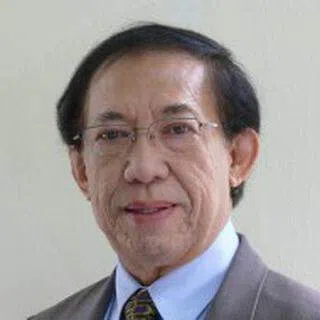Indonesia's strategic considerations in joining BRICS
Given the intensity of the China-US rivalry and the upcoming presidential election in Indonesia, President Jokowi has seemingly changed his strategy temporarily so as not to be distracted by BRICS issues. However, Jokowi is still determined to make Indonesia a strong country, says ISEAS academic Leo Suryadinata.
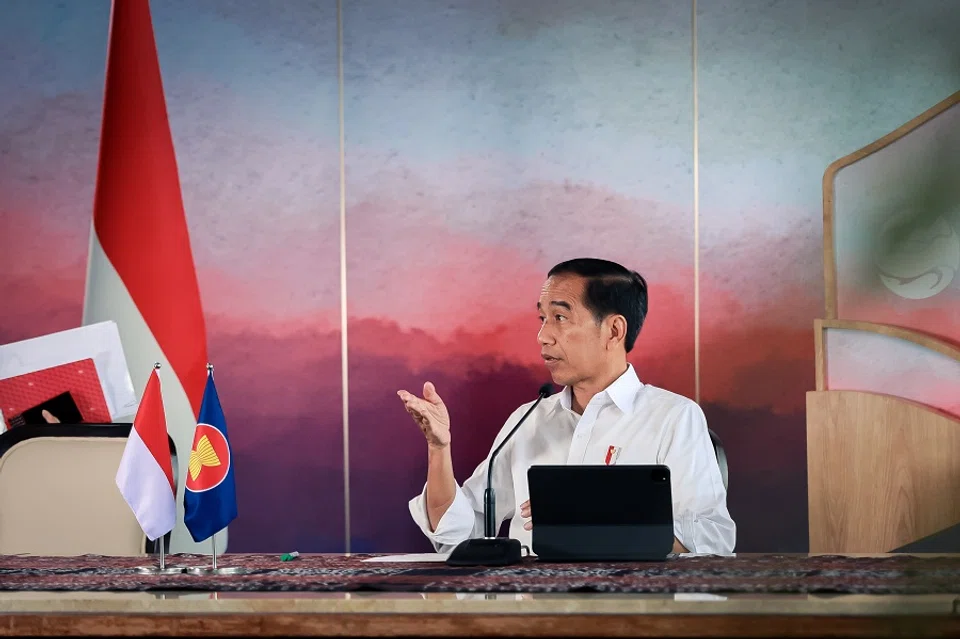
At the BRICS summit held in August 2023 in Johannesburg, Indonesian President Joko "Jokowi" Widodo, emphasised the importance of abiding by international law as the basis for international cooperation. At the same time, he pointed out the trade discrimination and obstruction to the development of "downstream industries" in today's world. He also criticised the unfair global economic order for exacerbating poverty and hunger in developing countries.
Indonesia's intentions
Jokowi urged developing countries to unite and defend their shared interests in order to make global trade and economic development more equitable. He also said that the BRICS can be the pioneer in realising this vision.
In his address, Jokowi stated that he was not only speaking on behalf of his fellow Indonesians as their leader, but also voicing out the sentiments of 85% of the world's population who are living in the developing countries of the global south.
Even though Jokowi did not name names, discerning listeners will know that his speech was directed at the developed countries of the G7. By calling the BRICS a champion of the global south, he was also affirming the bloc's positive impact. This has led some to speculate that Indonesia has immediate plans to join the BRICS.
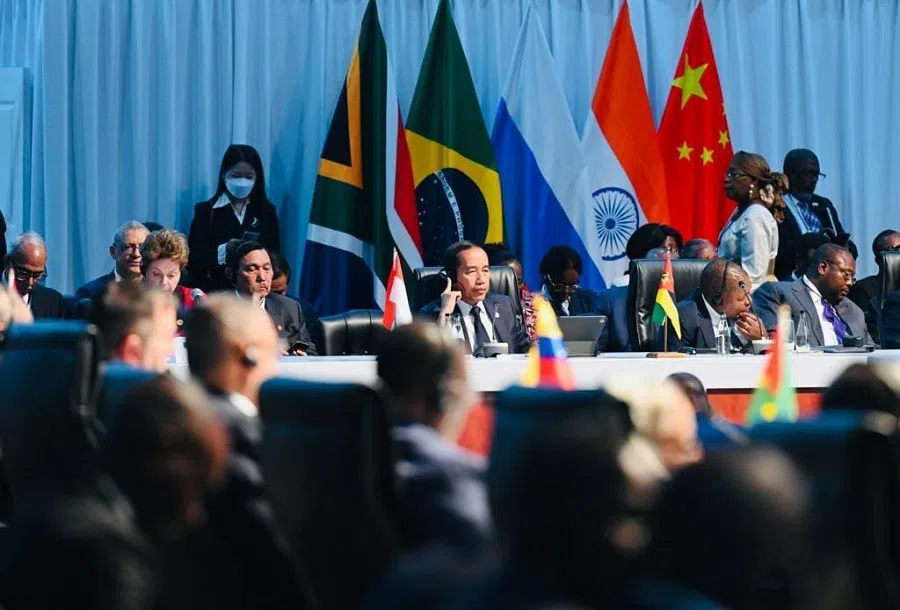
Prior to this year's BRICS summit, the Indonesian Vice-Minister of Trade Jerry Sambuaga said on 10 August that Indonesia is a member of many international groupings, such as the Association of Southeast Asian Nations (ASEAN), Asia Pacific Economic Cooperation (APEC) and the G20, and was considering BRICS membership to access Latin American and African markets.
Sambuaga added that BRICS members Brazil and South Africa can become Indonesia's gateway into Latin America and Africa respectively. But, unlike Jokowi, he stopped short of labelling the BRICS as a champion of the global south.
Collective economy surpassing G7
Following his BRICS address, Jokowi told reporters that he was in attendance at the invitation of the BRICS summit committee. He added that Indonesia is not a BRICS member but is considering whether to apply for membership.
The addition of new members may cause concern for some Western countries, particularly the US, given that BRICS member countries plan to use local currencies instead of the US dollar as a trading currency.
President Cyril Ramaphosa of South Africa, which organised the latest BRICS summit, said that over 40 countries are considering joining the organisation, including Indonesia. Over 20 countries have already formally applied for membership. At the 2023 summit, the BRICS inducted six new members, including Argentina, Iran, Egypt, Saudi Arabia, the UAE and Ethiopia.
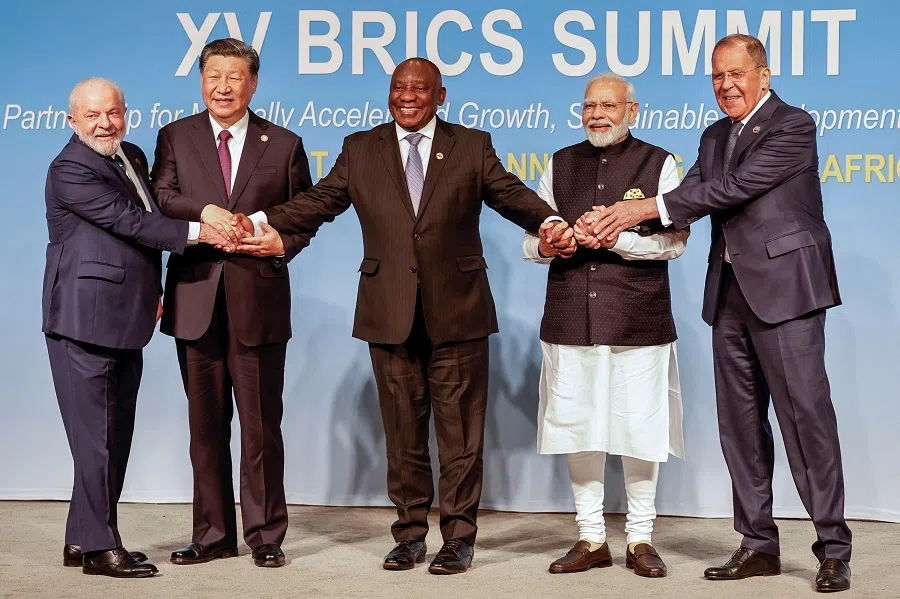
Even though the BRICS has 11 member countries now with an aggregated economy surpassing that of the G7, its influence is still highly limited. The addition of new members may cause concern for some Western countries, particularly the US, given that BRICS member countries plan to use local currencies instead of the US dollar as a trading currency. This is highly detrimental to US interests.
Some academics envision the BRICS as a rival to the US-led G7. Outside of Brazil and South Africa, China, Russia and India are major powers that seek to become more influential. If BRICS members are able to unite, the group may pose a threat to Western countries.
Of the five BRICS founding members, economic powerhouse China is especially enthusiastic about BRICS matters. However, the organisation is currently still unable to stand up to the G7. Some scholars believe that while the BRICS is beneficial to China, its members are unlikely to act in concert due to their different national interests and bilateral relations with the US.
Indonesia becoming a BRICS member now could be seen as a signal that it has chosen to side with China, and this will be damaging to Indonesia's position of being non-aligned.
Staying neutral in the China-US rivalry
Why is Indonesia not yet a member of the BRICS? Was Jokowi pressured by the US to put on hold Indonesia's intention of joining the group, or was it because the time was not ripe for it to do so?
There are at least two schools of thought among analysts on the matter. First, there is no economic incentive for Indonesia as it is in the midst of applying to join the Organisation of Economic Cooperation and Development (OECD). This "rich man's club" membership will benefit Indonesia's trade.
Second, given the intense China-US rivalry at the moment, some in Jakarta view the BRICS as a "club" under China's control and with anti-Western inclinations. Indonesia becoming a BRICS member now could be seen as a signal that it has chosen to side with China, and this will be damaging to Indonesia's position of being non-aligned.
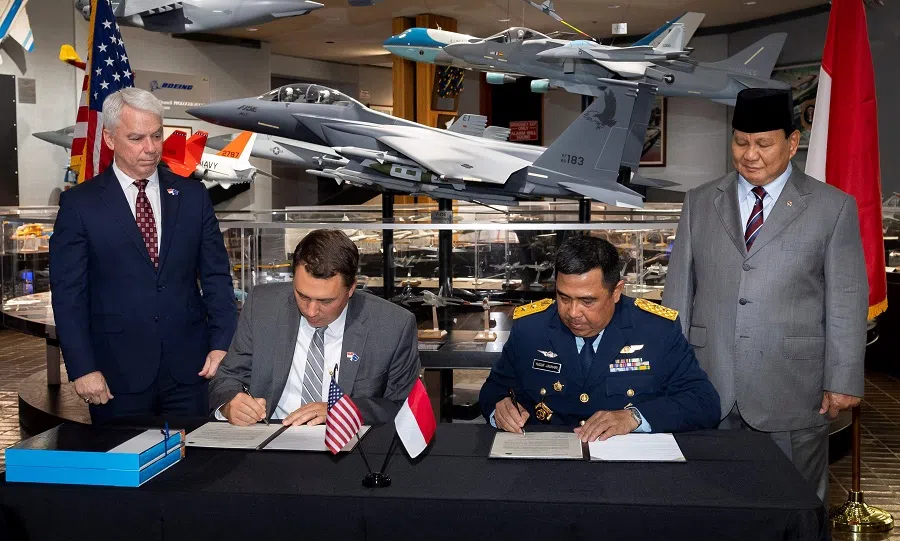
Prior to Jokowi's trip to the BRICS summit, Indonesia's Coordinating Minister for Investment and Maritime Affairs Luhut Binsar Pandjaitan was in the US for official talks on energy sector cooperation, among others. At the end of August, Indonesian Defence Minister Prabowo headed to the US to conclude a deal to purchase fighter jets and black hawk helicopters, and to discuss South China Sea issues.
On the closing day of the BRICS summit on 24 August, the US Department of Defense issued a "joint press statement" that Prabowo and US Defence Secretary Lloyd Austin shared the view that China's "expansive maritime claims in the South China Sea are inconsistent with international law as reflected in the United Nations Convention on the Law of the Sea", and that both ministers jointly condemned Russia's invasion of Ukraine.
Upon returning to Indonesia, Prabowo publicly denied that there was a joint press conference or a joint statement with the US and went on to say that Indonesia is a good friend of both China and Russia. This shows how difficult it is for Indonesia to remain neutral in the China-US rivalry.
For now, given the intensifying China-US rivalry and the upcoming presidential election in Indonesia, Jokowi has seemingly changed his strategy temporarily so as not to be distracted by BRICS issues.
Jokowi's diplomatic efforts
Nonetheless, Indonesia shares several ideological similarities with BRICS member states, such as its desire for a fairer global economic order and to move away from an overreliance on the US dollar in trade.
Recently, Indonesia got into a spat with the EU over the former's decision to ban the export of cheap nickel ores and only allow that of much costlier semi-finished nickel goods. This is to Indonesia's advantage as it can boost its income and develop industrial capabilities. But the EU feels that Indonesia has acted in violation of provisions under the World Trade Organization. Indonesia lodged an appeal amid its dissatisfaction, with Jokowi stating his firm stance on the matter.
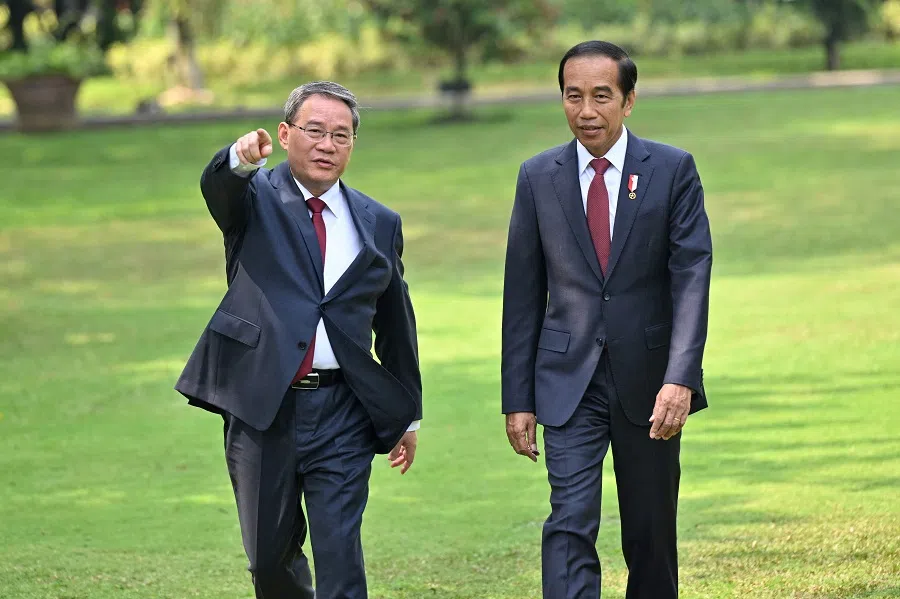
For now, given the intensifying China-US rivalry and the upcoming presidential election in Indonesia, Jokowi has seemingly changed his strategy temporarily so as not to be distracted by BRICS issues. However, he is still determined to make Indonesia a strong country.
He also feels that as a big country, Indonesia should lead instead of follow. Jokowi was previously thought of as a president who is more au fait with developing the domestic economy and less so with diplomacy. However, he demonstrated his diplomatic prowess during his second presidential term.
Other than trying to resolve the Myanmar problem and mediate the Russia-Ukraine conflict through shuttle diplomacy, Jokowi also provided a platform for Chinese and US leaders to meet at the G20 summit during Indonesia's chairmanship in 2022.
Even though Jokowi's diplomatic efforts have not led to major breakthroughs, he has helped Indonesia carve out a role for itself on the global stage.
This article was first published in Lianhe Zaobao as "印尼加入金砖组织的战略考量".
